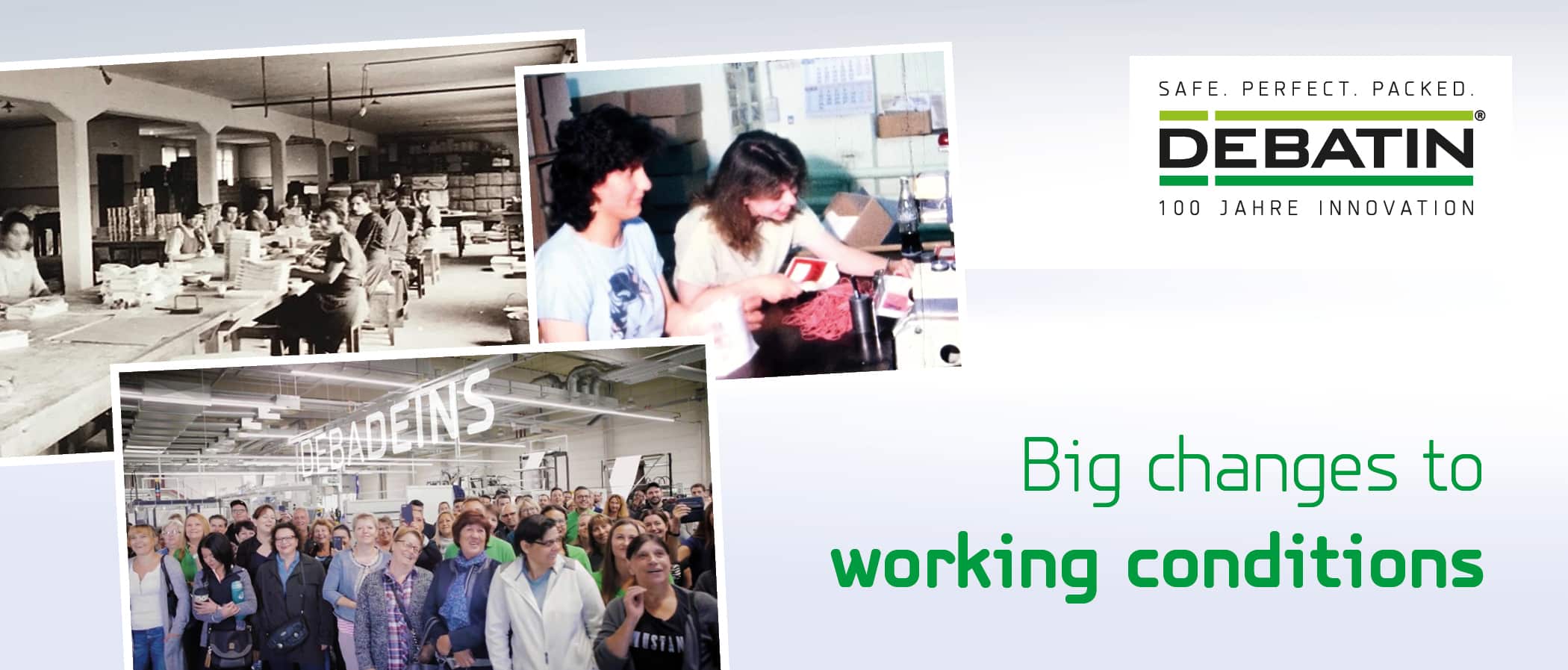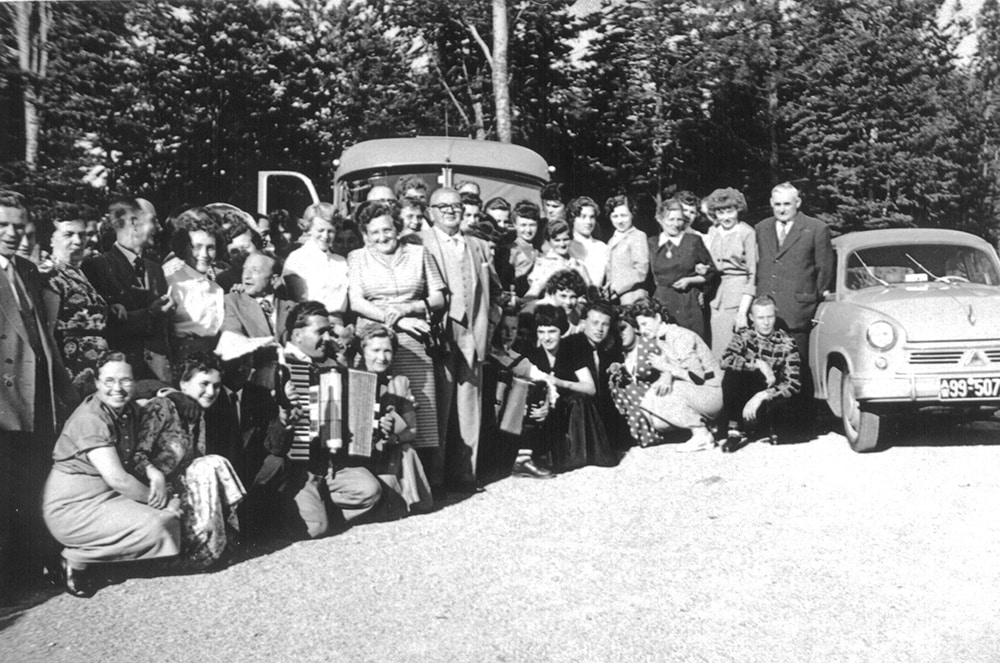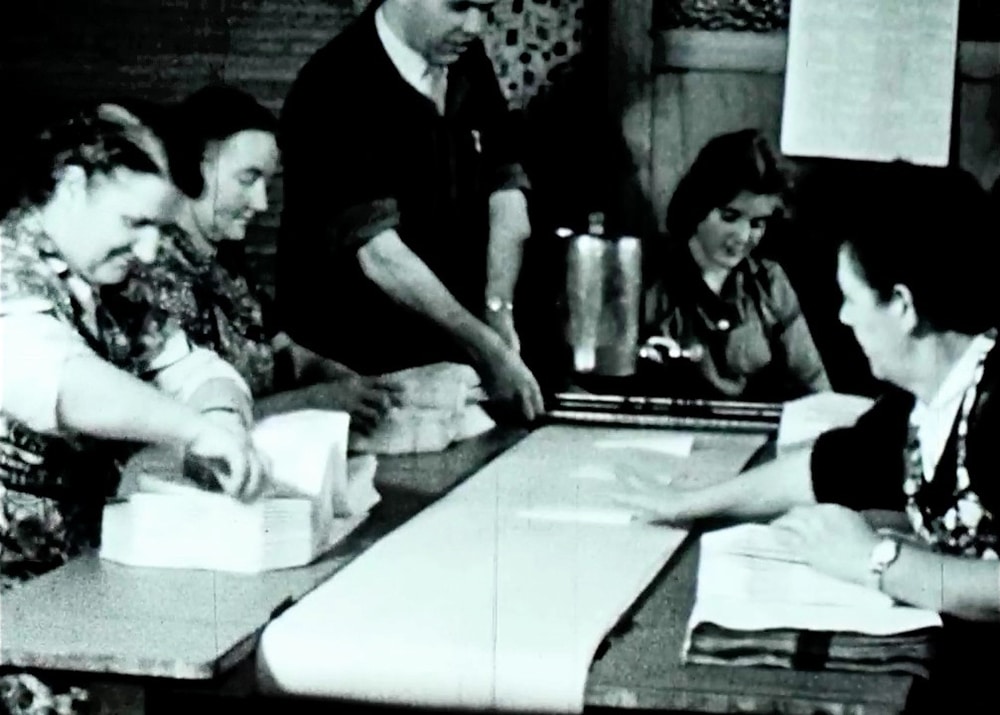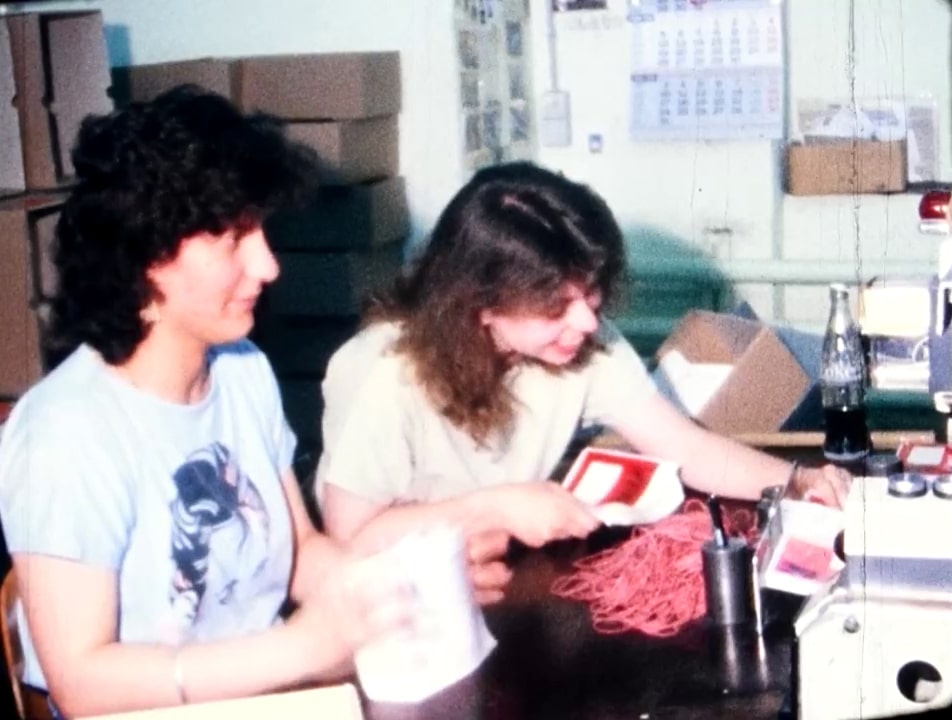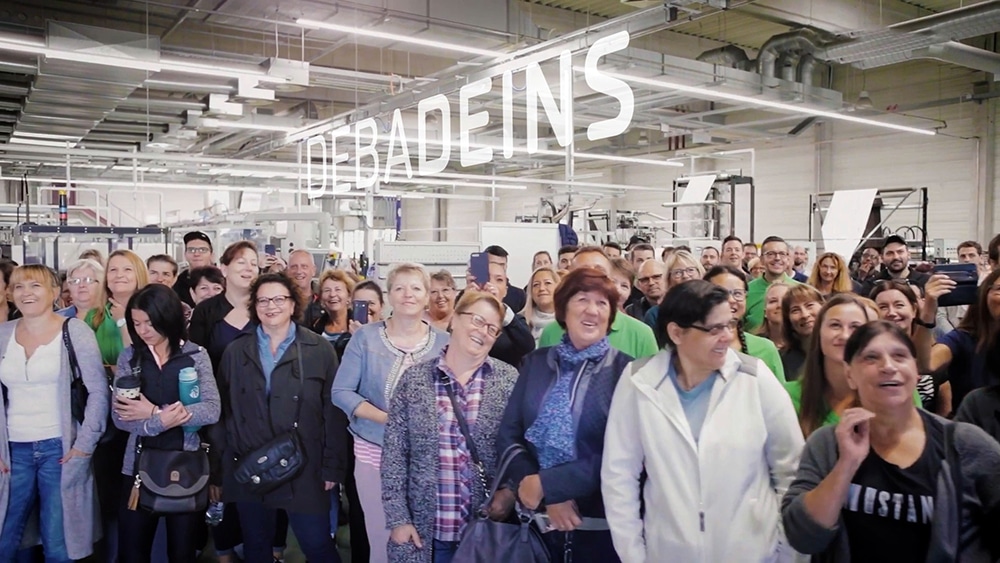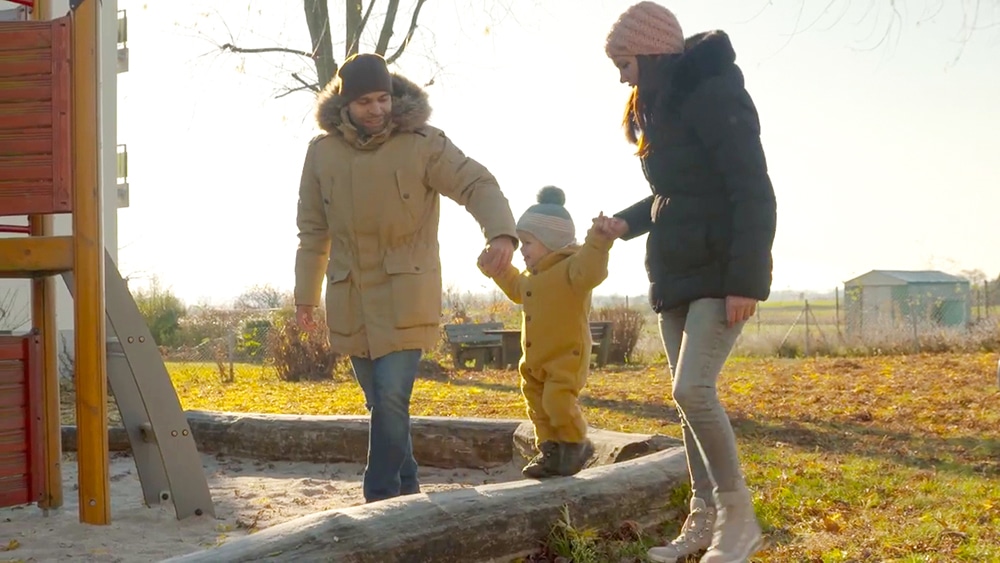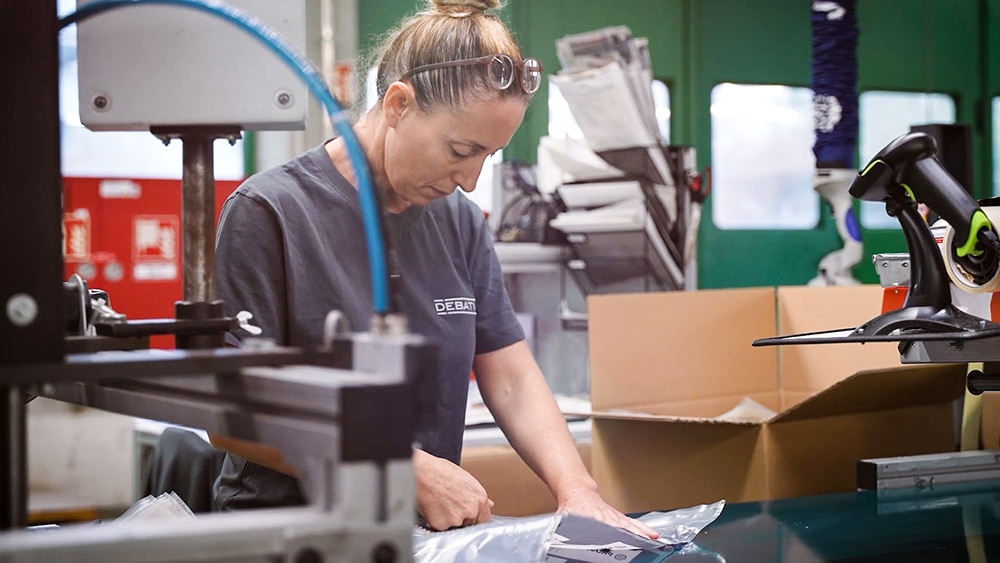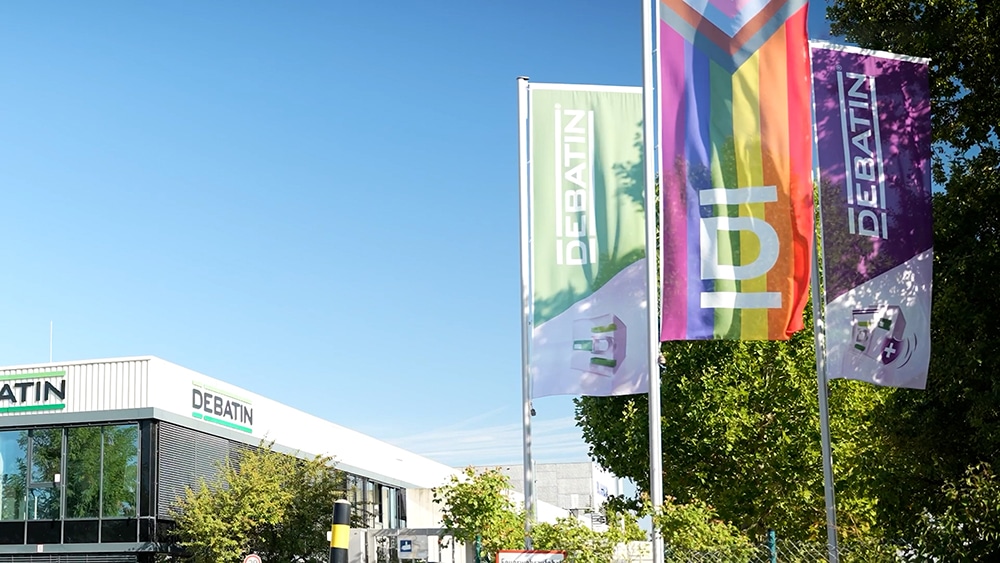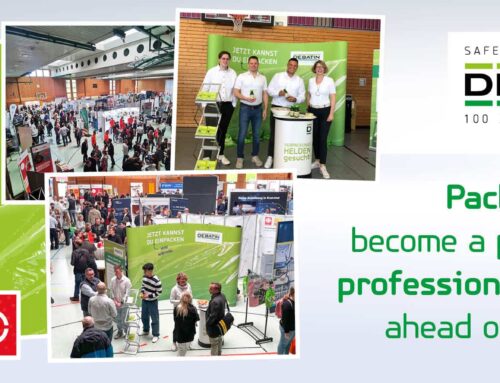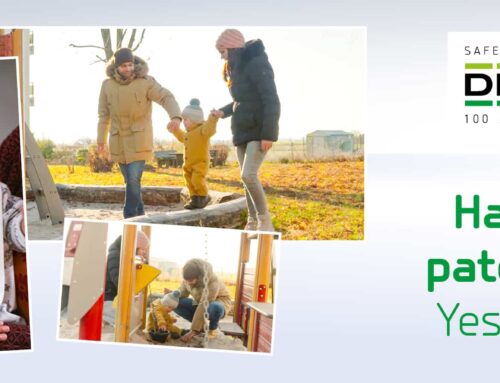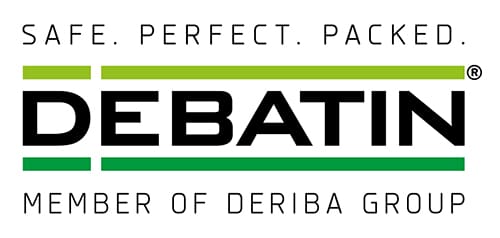Back in the 1920s, people in Germany tended to work six days a week and more than eight hours a day. There were only a handful of laws to protect employees. DEBATIN was operating at the time from a small office and print shop, and many products were made by employees at home.
Over the years, extensive laws have been introduced to protect employee rights and improve health and safety at work. Legislation now regulates aspects such as working hours, minimum wages and occupational health and safety. Within the course of a century, working environments and conditions have changed significantly in Germany (and, of course, at DEBATIN!).
Trade unions, technological progress and new professions
Fighting for higher wages, better welfare packages and better working hours, trade unions have played an important role in improving working conditions around the world.
Another aspect that has changed the world of work, however, is technological progress and automation. Work processes have been restructured and automated, resulting in new professions that require new skills and qualifications.
At DEBATIN, for example, major changes resulted from the development and introduction of new machines to produce plastic films, plastic bags, UNIPACK® document pouches and DEBASAFE® Safebags. Operating the new machines correctly has required employees to learn new skill sets.
DEBATIN is committed to diversity, equality and support
Although women were given the vote in 1919, the Federal Republic of Germany did not introduce an equal rights law for men and women until 1958. For the first time, this allowed women to open their own bank accounts and do as they chose with their own money. Prior to this, husbands (or parents, in the case of unmarried women) had the final word on all financial decisions. The same applied to paid employment: husbands had the final word on whether or not their wives went out to work. Right up until 1977(!), women in West Germany were only allowed to do so if it did not impinge on their “matrimonial and family duties”. Basically, up to this point, a husband could withdraw his consent at any time and terminate his wife’s employment contract – a mind-boggling fact when you consider that Regina Debatin had been acting as CEO of Anton Debatin GmbH since 1961. In fact, some of the women in our workforce who’ve celebrated significant work anniversaries or retired in the not so distant past have still had a parent’s or husband’s signature on their employment contract!
Thankfully, much has changed over the last decades, not least with Germany’s introduction of the Equal Treatment Act in 1980. DEBATIN, meanwhile, has focussed on equality and diversity, with women in management positions and fathers taking parental leave. We’ve developed flexible working models and remote working opportunities to help employees juggle the demands of work and family and enjoy a healthier work/life balance.
As confirmation that we’re on the right track, DEBATIN has repeatedly been voted a top vocational training provider and a “Leading Employer” (in the top 1 % of employers in Germany). But far from resting on our laurels, we remain committed to improving working conditions for our DEBATEAM.
The world of work continues to change constantly. We cannot ignore topics such as digitalisation, automation, sustainability and environmental protection, social responsibility, and employee satisfaction – because these are key to mastering the challenges of today and of the future.

